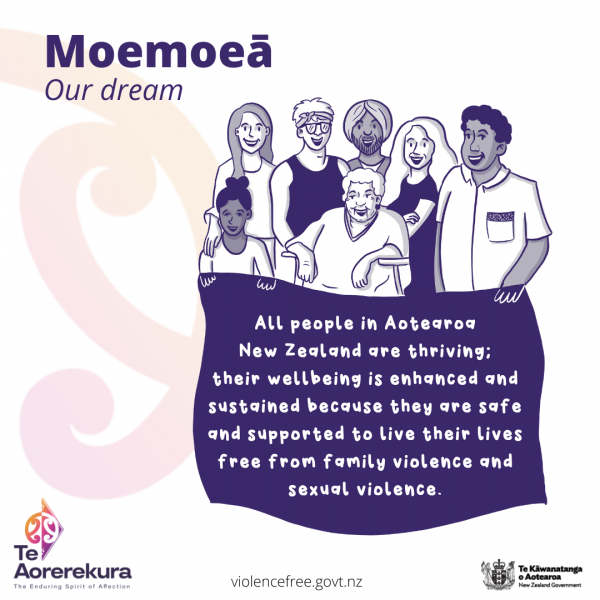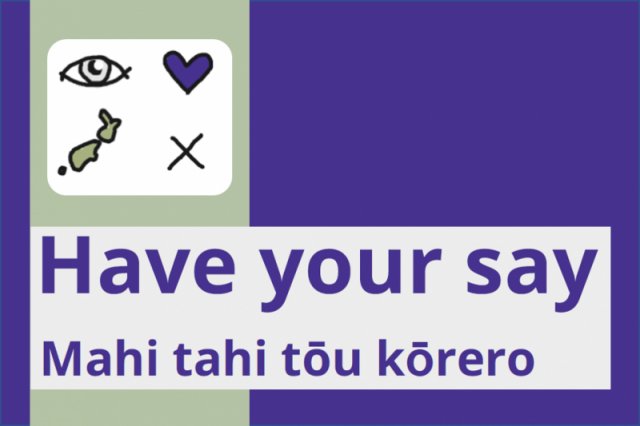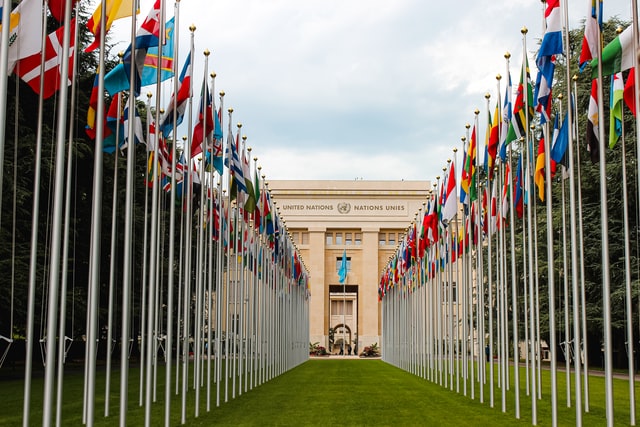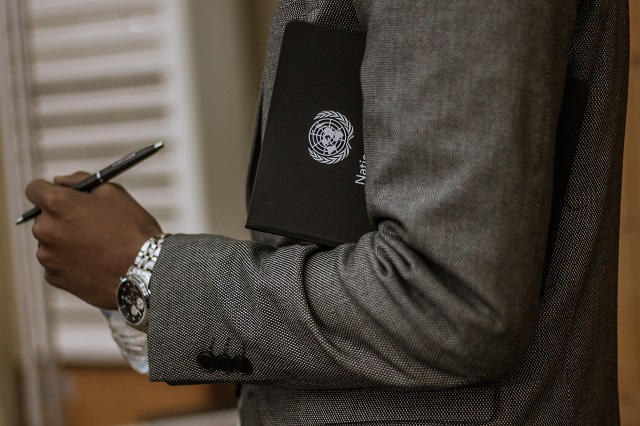Te Aorerekura strategy and action plan launched, changes to Joint Venture
Tue 14 Dec 2021
The government has launched Te Aorerekura, the new National Strategy to Eliminate Family Violence and Sexual Violence, and an Action Plan for the strategy. Changes to the Joint Venture and a new Tangata Whenua Advisory Group have also been announced.

National Strategy and Action Plan
Te Aorerekura is the National Strategy and Action Plan that sets out a new collective path for government, tangata whenua, specialist sectors, and communities to eliminate family violence and sexual violence in Aotearoa New Zealand. This is the first national strategy that includes both family violence and sexual violence.
Te Aorerekura is available in Te Reo Māori and other languages and accessible formats.
The purpose of the strategy is to outline a framework to eliminate family violence and sexual violence, to drive coordinated government action and to build and support community action.
The Strategy document states "Te Aorerekura is a 25 year strategy because it will take a generation of sustained investment and focus to strengthen the protective factors and enable the social changes required in Aotearoa New Zealand."
The moemoeā, or vision, for Te Aorerekura is “All people in Aotearoa New Zealand are thriving, their wellbeing is enhanced and sustained because they are safe and supported to live their lives free from family violence and sexual violence.”
The Strategy is guided by five principles – the whanonga pono: equity and inclusion, aroha, tika and pono, kotahitanga and kaitiakitanga. It outlines six 'shifts' or changes that are needed to address the drivers of violence and work towards achieving the vision of the strategy:
- strength-based wellbeing
- mobilising communities
- skilled, culturally competent and sustainable workforces
- investment in primary prevention
- safe, accessible, and integrated responses
- increased capacity for healing
Under each shift are broad actions that will lead to the shift. There are 40 initial actions outlined in the Action Plan for the National Strategy. The Action Plan covers two years through December 2023. It lists activities underneath each action and includes who is responsible for leading the activity and who is involved. The Plan is intended to be reviewed and refreshed annually, following an annual hui by tangata whenua, communities and the specialist sectors alongside government.
Te Aorerekura takes a wellbeing and strength-based approach to eliminating violence which includes a focus on primary prevention and healing. This draws on Te Tokotoru model developed by the Auckland Co-Design Lab and The Southern Initiative. See the October 2021 report Designing for equity and intergenerational wellbeing: Te Tokotoru.
The Strategy acknowledges the drivers of violence including that violence is about power, the gendered nature of violence, the compounding effects of colonisation, racism and sexism, and the differing experiences and needs of diverse people, families and whānau. It acknowledges that accountability is required from government and from people using violence while at the same time supporting people who use violence to change.
It also includes an overview of how it gives effect to Te Tiriti o Waitangi | The Treaty of Waitangi, and acknowledges the role of tangata whenua and community leadership for achieving intergenerational change.
In launching Te Aorerekura, Minister for the Prevention of Family and Sexual Violence Marama Davidson said:
“We need to address the intergenerational impacts of colonisation and racism in order for us to eliminate violence. Violence that impacts whānau is rooted in the marginalisation of tangata whenua and societal changes enforced during the colonisation of Aotearoa. There are solutions within the promotion and strengthening of whānau ora that require a focus on healing, restoration, redress and a return to a state of noa – being without limitations.
You can watch a video of the launch of Te Aorerekura. Also see summaries from the community engagement (scroll to the bottom of the page) to develop the Strategy.
Minister Davidson said on social media:
"At the root of this violence is often complex, interwoven and often inter-generational issues that are enabled by a range of underlying social conditions, norms, and hierarchies of power and equity.
As many of you have experienced, Aotearoa’s response to family violence and sexual violence has historically been siloed and under-resourced and has tended to focus on responses rather than prevention.
It is clear that approach has not worked, we have not reduced the violence experienced in this country.
This year we set out to listen and learn how we could do things differently."
Also see Minister Davidson's speech from the launch of Te Aorerekura. Minister Davidson has been interviewed about Te Aorerekura by RNZ, Te Ao Māori news and Waatea News.
The NZ Herald reported that new National Party Leader Christopher Luxon is supportive of the Strategy.
Some government agencies have published information that reference their role in implementing Te Aorerekura, including: ACC, the Ministry of Justice and the Ministry of Social Development.
Changes to Joint Venture and new Tangata Whenua Advisory Group
Minister Davidson has announced that a new interdepartmental executive Board for the elimination of family violence and sexual violence will replace the Joint Venture. The name of the Board will be announced in early 2022. Minister Davidson said:
“The Executive Board uses the same accountability mechanisms that exist between a chief executive and a Minister, but enables joint responsibility for collective work. This means that chief executive board members have joint responsibility for the operation of the board. It helps strengthen the collective commitment of chief executives to priorities that span multiple agencies’ responsibilities.
“The Board will be focused on aligning strategy, policy, and budgeting functions across relevant agencies. This will enable Ministers to receive whole-of-government advice to support decision-making that takes a system-wide perspective towards the vision of ending family violence and sexual violence.
Update: The Sustaining a collaborative approach to support the whole-of-government response to eliminate family violence and sexual violence Cabinet Paper and Minute related to the executive board and tangata whenua advisory group have been proactively released.
The Joint Venture was established in 2018. In June 2021, the Auditor-General published a report calling for "significant improvements" in the operation and function of the Joint Venture. The December 2021 e-Update from the Joint Venture announced that Fiona Ross is departing from her role as Joint Venture Director, and that Emma Powell, ACC representative on the Joint Venture Deputy Chief Executives’ group, will take over as Interim Director from 13 December.
Minister Davidson also announced a new advisory group when launching Te Aorerekura saying:
"Today, we are also announcing that Cabinet has agreed to establish a Tangata Whenua Advisory Group to provide independent advice and guidance to me as Minister on family violence and sexual violence. This governance input is a crucial improvement to the system and will ensure that te ao Māori informs our implementation of the Strategy."
See the Joint Venture website for more information about the Māori-Crown partnership.
Response from advocates to Te Aorerekura
Women's Refuge welcomed Te Aorerekura saying:
"Te Aorerekura, rooted deeply and deliberately in Te Ao Māori, brings together the knowledge, expertise, and experience of both those living with the everyday realities of violence in their lives and those of us working to support them. It has been constructed from a long and exhaustive consultation and negotiation process, bringing together a multitude of voices to reach a common understanding and build a shared vision of a way forward.
Women’s Refuge is cautiously excited at this long-awaited launch. Dr Ang Jury, Chief Executive of the National Collective of Women’s Refuges notes that 'this is just the beginning. Now that the talking is done, the real work must begin. Now is the time when we need to see real sustained commitment to bringing the actions outlined in Te Aorerekura to life.' "
RNZ interviewed Dr Ang Jury about the Strategy.
Te Ōhaakii ā Hine-National Network Ending Sexual Violence Together (TOAH-NNEST) welcomed the Strategy saying:
"This action plan is a crucial step towards creating greater collaboration amongst Government Agencies and we hope this will ensure that collectively we can create systems of support that are safe, centre the people who need help, hold people accountable for their behaviour, and ensure sustainable change over time."
The Disability Rights and Equal Employment Opportunities Commissioners have also welcomed Te Aorerekura. Disability Rights Commissioner Paula Tesoriero said:
"We can only achieve better outcomes through collective action. Until this strategy, we have not explicitly acknowledged how our power structures have overlooked the impacts of family and sexual violence on tāngata whaikaha Māori and disabled people.
"Nor have we addressed how prevailing attitudes have kept disabled people silenced about the violence and abuse they experience for too long. A lack of workforce knowledge has also meant inadequate responses when people do speak up."
Saunoamaali’i Karanina Sumeo, Equal Employment Opportunities Commissioner said:
“It’s heartening to hear that the Government will embark on a new approach that is victim-centred, ensuring continued inclusive and accessible services focused both on prevention and appropriate responses to support survivors and families at risk of violence.
“It has taken us far too long to get here. I’m hopeful the intention and investment will begin protecting, healing, and restoring the lives of children and women victimised by family violence, particularly for our wahine Māori, Pacific and ethnic women.
“I would like to see ongoing resourcing and adequate support for survivors as well as perpetrators of family violence to seek the help and rehabilitation, so we can continue to create peaceful homes and safer communities.”
Other organisations have welcomed and responded to the launch of Te Aorerekura including: Te Kupenga Whakaoti Mahi Patunga | National Network of Family Violence Services, Social Service Providers Aotearoa and Te Pūtahitanga o Te Waipounamu. See further responses from advocates in the related media below.
Related news
In the weeks before the launch, Minister Davidson announced funding of new national-level family violence and sexual violence prevention initiatives for LGBTQIA+ people, people with disabilities, older people and new migrant communities. As part of the $2 million commitment from Budget 2019 to understand violence prevention needs and develop violence prevention initiatives in specific communities, the new initiatives include:
- "$399,000 for LGBTQIA+ centred violence prevention initiatives, including the development of practice guidelines, healthy relationships and consent resources, and an awareness raising campaign
- $350,000 to mobilise disabled communities to begin the process of addressing systemic barriers faced by tāngata whaikaha, deaf and other disabled people, implement the Safeguarding Framework and grow and strengthen the Safeguarding Adults From Abuse (SAFA) response in the Waitematā to safeguard adults at risk
- $242,000 for new violence prevention initiatives for ethnic communities, including the expansion of the Shama community development programme to six new locations and the expansion of Let’s Talk, plus the development of community conversations and healthy relationship resources
- $200,000 to support the violence prevention needs of older people.
- $250,000 to build relationships and capacity for diverse communities to engage with Joint Venture agencies
- $137,500 for Community Advisory Groups established by Massey University Center for Culture-Centered Approach to Research and Evaluation (CARE) to develop localised violence prevention initiatives and frameworks in five locations."
To support this work, the Joint Venture commissioned Massey University Center for Culture-Centered Approach to Research and Evaluation (CARE) to research the specific violence prevention needs of diverse communities. From this research, Massey CARE published the report Community-led culture-centered prevention of family violence and sexual violence (2021). See the Massey CARE project webpage for more information including an executive summary and interim report.
Disability Rights Commissioner Paula Tesoriero announced two new reports from the Human Rights Commission exploring people with disabilities experiences of violence and abuse.
The reports, Whakamanahia Te Tiriti, Whakahaumarutia te Tangata (Honour the Treaty, Protect the Person) and Whakamahia te Tūkino kore Ināianei, ā Muri Ake Nei (Acting Now for a Violence and Abuse Free Future), outline the evidence on the causes and impacts of violence including racism and colonisation, and abuse against tāngata whaikaha Māori and disabled people. The reports outline gaps in systems, knowledge and services, and set out a roadmap for systemic change. Together the reports make 20 recommendations.
In launching the reports, Disability Rights Commissioner Paula Tesoriero said "These reports provide, for the first time, an evidence base and graphic illustration of the violence and abuse suffered by tāngata whaikaha Māori and disabled people. They show a continued absence of effective responses to reduce its incidence."
And she went on to say :
"In Aotearoa, racism and ableism intersect to create unique additional risks for tāngata whaikaha Māori who must navigate racism, discrimination and other biases."
"This has resulted in the suppression of rangatiratanga along with the many disabling effects on the ability of tāngata whaikaha Māori to define themselves and their own lives"
Minister Davidson responded to the reports saying:
"Disabled people have highlighted to me the lack of specialist family violence and sexual violence services and supports, the lack of a nationally consistent and mandated safeguarding approach, and the need for more data and research to make visible their experiences.
They emphasised that disabled people need to be at the decision making tables.
We also need to address the intergenerational impacts of colonisation and racism in order for us to eliminate violence."
White Ribbon has created an infographic and video with Disability Rights Commissioner Paula Tesoriero to highlight experiences of violence for people with disabilities drawing on new research published this year.
Related media
Marama Davidson outlines plan to tackle homelessness and family violence, Newshub Nation, 26.02.2022
Wrap-around strategy, Gisborne Herald, 13.12.2021
Anti-violence advocates urge more Pasifika included in plan, RNZ, 10.12.2021
James Papalii | Whānau Services MUMA [interview], Waatea News, 09.12.2021
Sexual violence support organisation says funding to work with children limited, RNZ, 08.12.2021
Collective action to stop the violence, Gisborne Herald, 08.12.2021
Government reveals 25-year plan to tackle family and sexual violence, RNZ, 07.12.2021
NZ's first plan to halt family and sexual violence, Te Ao Māori News, 07.12.2021
'Our greatest shame': Eliminating violence will take a generation's work, Stuff, 07.12.2021
Long-term strategy aims to end cycle of family and sexual violence, PMN News, 07.12.2021
Government marks International Day of Persons with Disabilities, Beehive media release, 03.12.2021
Oranga Tamariki welcomes new Chief Advisor Disability , Oranga Tamariki media release, 03.12.2021
Welcome Boost For Violence Prevention In Ethnic Communities, Press Release: SHAMA, Scoop, 29.11.2021
First investment in rainbow violence prevention in Aotearoa, InsideOut news, 24.11.2021
Image: Te Aorerekura: The national strategy to eliminate family violence and sexual violence, NZ Government









